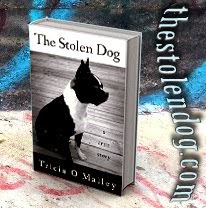First, I must print this disclaimer. I’m not a marketing individual. And I, James, the second book of The Eternity Series which will be released in September 2014, is only the second book that I’ve tried to market. So, everything has been trial and error. But, I will borrow heavily from badredheadmedia.com’s Rachel Thompson, and several others, and the lessons they have taught me.
- You need an Online Presence. Gmail+, FaceBook, Twitter, Pinterest…. They all have their uses. Personally, I’m on FaceBook, and Twitter.
- Facebook has my personal page, where my family and friends reside, and then a Corporate page which is where I try to publicize The Eternity Series. And other projects that I have. BcBaldEagles.com also comes to mind. It’s also a separate corporate page. And the three pages share posts from each other.
- Twitter is my second social media channel. @MHartnerAuthor is my identity, since Rachel once said, it’s better to publicize yourself as an author than to publicize individual books, and keep changing the identity. Son’t confuse people. Publicize yourself as an author.
- First Rule of Social Media: It’s Social. Don’t Spam. Don’t spill every word saying ‘Buy my book’. Build relationships, show people your interests outside of writing. If you’re interested in Nutella, and Alaskam wilderness cabins, show that. If it’s quilting, crocheting and flowers you’re interested in, show that. Let people meet the REAL you.
- Pluggio and hootsuite are great tools. Pluggio allows you to ‘drip’ every few hours news topics of your interest. Hootsuite allows you to post on more than one site from a consolidated dashboard. Both are useful.
- Don’t expect everyone who follows you to remain. But help them by not including expletives in every second post, or every third word. Show them that you can enjoy life as much as it can frustrate you.
BLOG, or get blog tours. Blog tours are GREAT exposure for your book. They usually have a wide and diverse cross section of reviewers, who are all interested, to some extent, in your writing.
HELP OTHERS. If you can help others with your lessons, do. If you can Share other’s posts, announcements, etc… chances are they’ll share yours. And your messages will get out to people you never expected.
90/10 Rule. At least 90 percent of your posts and blogs should be focused on things OTHER THAN selling your book. Great reviews are one thing you can announce more often. Share Reviews of books you’ve read. Even better if they’re current books (last five years). Even Better if you’re following the author when you post the review.
ENGAGE your audience. Snippets, comments, and reviews of everyone’s work are great things to post. Top Ten lists about your life, about your hobbies… all of these build audience.
And while you’re building audience, but not screaming BUY MY BOOK, chances are some people will buy it.
And that’s what makes social media so great. Being Social.
James Crofter was ripped from his family at age 11.
Within a year the prince was a pauper in a foreign land.
Is nature stronger than nurture? And even if it is, can James find the happiness he so richly desires?
Within a year the prince was a pauper in a foreign land.
Is nature stronger than nurture? And even if it is, can James find the happiness he so richly desires?
Buy Now @ Amazon
Genre - Historical Fiction, Romance
Rating – PG
More details about the author

























